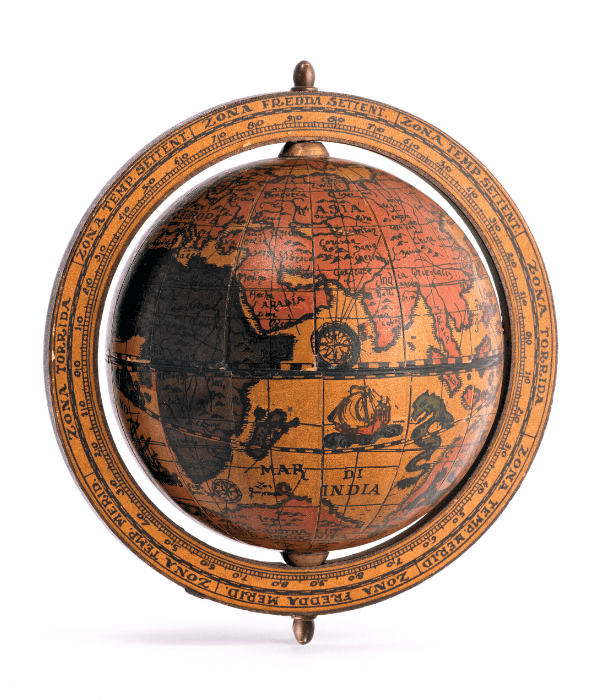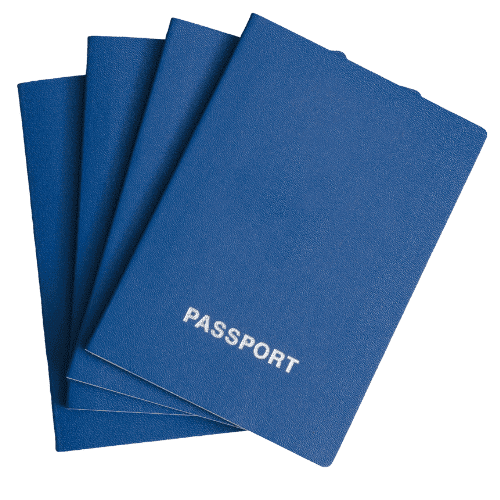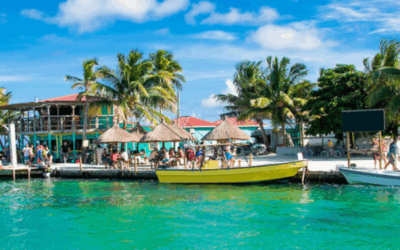The most popular service we provide here at Nomad Capitalist is helping people get a second residence – the most popular by far.
That’s because obtaining a second residence is often one of the easiest and quickest steps that you can take to legally lower your tax bill, open up new investment markets, and enable yourself to live abroad, if you so choose.
It’s the ‘vanilla’ of the Nomad Capitalist world.
But that doesn’t mean that it’s so plain, easy, and cheap that everyone can just get up and do it.
It takes careful planning and plenty of effort.
For example, people who want to immigrate to Canada, Australia, or the United States will need to have a solid job, make a significant investment, and complete months’-worth of paperwork before they get a residence permit.
Fortunately, not all jurisdictions have such heavy-handed requirements.
Plus, as a six- or seven-figure entrepreneur, you have us on your side.
It’s our job to navigate the world of second residencies and help you choose the one that will have the best effort-to-return ratio for you.
REASONS TO GET A SECOND RESIDENCE
EXPAT LIVING
Do you want to live in another country? You need a second residence. Do you want to become a citizen of another country? A second residence is your first step.
TAX BENEFITS
Once you obtain a residence permit in another country, you can work to become a tax resident as well. But they’re not the same! Residence just opens the door to tax residency.
DIVERSIFICATION
Many residence programs allow or even require you to make investments in your new country of residence. In this way, a second residence creates both economic and political diversification.
The ‘What’s What’ of Second Residence
Let’s get the terms straightened out because there are a lot of myths surrounding second residence and everything that it entails.
Second residence, also known as a second residency or a residence permit, is the legal right to live in a country on a long-term basis.
How ‘long-term’ that actually is depends on the country and the type of permit that you get.
So, let’s first distinguish between temporary and permanent residence.
LET US CREATE YOUR HOLISTIC OFFSHORE PLAN
TEMPORARY VS. PERMANENT
A temporary residence will always need to be renewed if you wish to maintain your resident status.
What counts as temporary depends on the country.
In some countries, you only get one year at a time. In others, your temporary permit could last as long as five years or more.
Most countries have rules on how many days a year you must spend in the country to retain your second residence permit.
For instance, you only need to spend a few days a year in Panama or Colombia to maintain your residence in these countries.
Oftentimes, the temporary residence is the first step toward obtaining permanent resident status.
Most of the time, permanent residence actually means permanent residence. As in, you never or almost never have to go there and renew it.
And you never need to spend time in the country to maintain it, either.
But other times, permanent residence isn’t permanent at all. The best example of this (and the most egregious by far) is the United States.
A US green card (aka permanent resident permit) gives you the right to live in the United States permanently.
But the minute you stop living there, USCIS can cancel it at any time. That’s why, if you have a green card, you better be living in the United States for 10-11 months each year.
Sure, some people slip through the cracks and the immigration officers might not bother you, but they can cancel it and deny you entry upon your return to the country.
On the other hand, you have a place like Greece.
Through their second residence program, also known as the Greece Golden Visa, you can invest $250,000 in property and receive a permanent residence permit.
The permit is permanent and not easily revoked.
You won’t have to live there, and if you don’t live there, you won’t have to pay taxes.
Best of both worlds.
And you get to enjoy your Grecian holiday home whenever you want.
As you can tell, it’s not an understatement to say that the rules about the second residence vary widely.
RESIDENT VS. TAX RESIDENT
There is also an important distinction to be made between having a residence permit and being a tax resident of a country.
Simply having a residence permit does not automatically give you tax obligations.
Nor tax benefits.
If like one of our clients, some guy at a conference told you that you only need to spend one day a year in Panama under their Friendly Nations visa to get the tax benefits, you’re in for a rude surprise.
You only need one day a year there to keep your permanent resident status active.
In and of itself, that conveys no tax benefits.
Having a permanent resident status will allow you to live in a country, grant you the opportunity to become naturalized in the future depending on the laws, and give you the ability to become a tax resident.
But it won’t make you a tax resident right off the bat.
And this is where it gets complicated. Determining your tax residency depends on where you’re from, where you’re going, and how much time you spend wherever it is you go.
Some countries will make you a tax resident with as little as one day per year in their country. Others do so after 30. In most countries, the tax residence threshold is between 90 and 180 days.
But there is more to concern yourself with than just the ‘days test’.
Western countries, especially, get very specific about what it means to be a tax resident. There are so many permutations.
The bottom line?
Simply having a residence permit does not make you a tax resident. However, having a residence permit is often the first step to becoming a tax resident.
And what about those tax benefits?
The goal is to become a tax resident in a zero- or low-tax country.
For example, if you have a UAE residence permit and you spend about six months there per year, you’ll become a tax resident.
And as a tax resident of Dubai, you can legally pay 0% tax and tell whatever other country you’re from to go pound sand.
Now, there are certain types of income that can’t be excluded. For instance, if you’re from the UK and have a UK rental property, you need to pay tax there.
It’s in their country.
Don’t go telling the UK to pound sand if you own property there! Even if you’re not physically in the UK, the property is.
As with all things, you need to use your second residence and tax residence to create a holistic offshore structure. It’s not simply a matter of getting a residence permit or citizenship.
You have to do more. But if you do, you can legally pay as little as 0% tax.
GET ACTIONABLE TIPS FOR REDUCING TAXES AND BUILDING FREEDOM OVERSEAS
Sign up for our Weekly Rundown packed with hand-picked insights on global citizenship, offshore tax planning, and new places to diversify. Plus, instant alerts on key global shifts.
How to obtain a
Second Residence
Residence permits can be issued for a number of reasons and the options available to you will vary by country.
Some countries refer to their residence programs as visas, but if you get a residence permit out of it, it’s a second residence, not a visa.
More on that in a minute.
For now, just know that some countries can confuse the terminology.
In general, you can obtain a residence permit by qualifying for one of the following:
FAMILY REUNIFICATION
If a close family member has second citizenship (or even just residency in some cases), you can obtain a residence permit to be reunited with your family.
Usually, ‘close family’ applies to children, parents, spouses, and legal partners. However, in some countries, it can also apply to siblings, grandparents, and even nieces and nephews.
MARRIAGE
If you are married to a foreign national, you can qualify for a residence permit in most countries.
Marriage could technically fall under family reunification, but there are many countries that separately refer to marriage as a qualifier for the second residence, with an application process solely dedicated to foreigners married to nationals.
BUSINESS
Often referred to as an entrepreneur visa, dozens of countries will give you a residence permit for doing business in their country.
This can be anything from presenting your plans to start a business, investing a certain amount of money in a local business (or your own), hiring local staff, or a combination of these requirements.
INVESTMENT
With a residence-by-investment program, you are essentially ‘buying’ your second residence by investing in one of the government’s various pre-approved investment options.
For example, several European countries offer ‘Golden Visas’ that are actually residence permits that you can obtain by investing in real estate, among other things.
Expect to pay at least $250,000 for this type of residence in Europe. The cost is one reason it is best to consider whether you qualify for one of the other options on this list first.
But if you want to live in a western country and don’t otherwise qualify, residence by investment could be your foot into your country of choice.
BANK DEPOSIT
Other countries set the bar lower for how much they want from you before they’ll hand you a residence permit.
In these countries, all you have to do is set up an account with a local bank and transfer a designated amount of money to it.
They’ll often combine this requirement with another qualification from the list.
For example, to get a second residence in Panama through the Friendly Nations Visa program, you need to open a bank account and deposit $5,000. Then, you also need to establish economic ties, which usually means setting up a Panama company.
RETIREMENT
If you meet a certain age limit and can prove sufficient monthly income, you may qualify for one of the many retirement ‘visas’ offered around the world.
These residence programs are popular in Spanish-speaking countries and are commonly known as Pensionado programs.
In most cases, they are specifically targeted at retirees, but other countries are a bit more lenient.
For example, Belize won’t even look at you if you aren’t at least 55. Meanwhile, the Philippines’ retirement program accepts ‘retirees’ as young as 35, and Malaysia has no age restriction.
Some countries are strict on the source of funds and want to see that they are coming from a government pension. Others just want to see that you have a set amount of money coming in each month.
This brings us to our final qualification…
SELF-SUFFICIENCY
If you can prove that you have enough funds to sustain yourself while living in the country, there are plenty of countries that will welcome you with open arms.
Mexico, for example, simply wants to see that you have enough money coming in each month to afford to live there.
If you can prove that, they’ll hand over a residence permit just like that.
There are various ways to obtain residence in countries all over the world. These are simply the most common ones you will find.
Sometimes the permit is temporary. Sometimes it is permanent. Other times it is temporary and leads to permanent residence.
It all just depends.
LET US CREATE YOUR
HOLISTIC OFFSHORE PLAN
“Obtaining a second residence is often one of the easiest and quickest steps that you can take to legally lower your tax bill, open up new investment markets, and enable yourself to live abroad.”
Why Would you Want a residence permit?
Just as there are many ways in which you can obtain a residence permit, there are also many different reasons why you would want one.
You may simply want to live somewhere and need a residence permit to do so, or you may want it for tax planning purposes.
Maybe you want all the benefits.
Whatever you’re hoping to achieve with a second residence, here are the main benefits of becoming a resident of another country:
1. TO ENJOY EXPAT LIFE IN ONE COUNTRY
If you simply want to live in a country, then a second residence might be the most straightforward way to achieve that.
We often have clients call up and say:
‘Hey, my (business) partner lives in Europe, but I can only be there for 90 days at a time. How can I fix that?’
The easiest way is by obtaining a second residence.
Some countries are easy to pop in and out of as a tourist, but many are tightening their grip and becoming stricter.
The visa runs that used to work don’t anymore. Even places like Thailand and Indonesia have started to crack down on that. And countries like the UK have always been strict.
You can avoid all that with a residence permit, which legally allows you to live there as much as you want.
This means that you can set up your whole life in your new residence. Make friends, become a member of the community, and even run your business from your new home.
If you are running a local business, check that your second residence allows you to do so.
Some residence permits will allow you to work (and/or do business), while others, like Panama, will require that you take out a separate permit to participate in the local labor market.
Other countries, like Malaysia, forbid you to work, point-blank.
There are many options to obtain a second residence to simply be able to live abroad if that’s what you wish to do.
If you want to live in a more developed country, residence is usually the way to go because you can avoid the harsher taxes that come with citizenship.
2. AS A PATH TO NATURALIZATION
A very valid reason to obtain a second residence would be to get started with the naturalization process.
Naturalization is one of the five ways to become a citizen of another country and get a second passport.
It is also a good way to see if you are even interested in living in the country long-term before applying for naturalization.
One way or another, a second residence is often a mere stepping-stone to a second passport.
For example, if you are a permanent resident in Greece and you spend enough time there as set out by the authorities, you can eventually be naturalized.
Meanwhile, in Portugal, you won’t need to live there for more than 14 days a year before you can apply for naturalization after just five years.
And in places like Colombia, they will naturalize you faster if you make larger investments, as opposed to smaller ones. The time frame currently stands at five and ten years, accordingly.
The only common thread here is that a second residence can lead to naturalization.
But there is so much variance between programs that it is difficult to make a blanket statement about how they operate.
And be forewarned: some residence programs will never lead to citizenship.
For instance, while Saudi Arabia and the UAE are both attractive options for various flag-planting opportunities, these countries will never extend citizenship to foreigners.
Plan accordingly.
3. TO OBTAIN TAX BENEFITS
Most people want to live somewhere without being forced to pay high tax rates.
It’s understandable.
That’s mostly what we do here at Nomad Capitalist – help people lower their taxes legally.
So, if you’re thinking about reaping the tax benefits of a second residency, consider this first: as we discussed, having a residency is usually the first step in becoming a tax resident.
Being a resident somewhere doesn’t automatically mean you’ll achieve a more favorable tax rate.
Some careful planning needs to take place to optimize your tax situation.
The second residence is an integral part of the planning process.
US CITIZENS VS. THE REST OF THE WORLD
As always, there are differences in how US citizens and non-US citizens should go about getting tax benefits via a second residency.
If you’re a US citizen, you must do a substantial amount of planning.
US citizens pay tax on their worldwide income, so while living in a tax haven can reduce your tax bill, you will never pay zero.
Depending on how much you make, though, you can pay a lot less.
If you’re living and paying tax in your new second residence, you can either rely on a bilateral tax treaty (if it exists) or apply the tax you pay as a US tax credit.
Are you a non-US citizen? Then the idea is much simpler.
You need to essentially divorce your home country’s tax system by becoming a non-tax resident at home. In today’s world of information sharing between countries, you’ll need a place that you can officially call your tax home.
Consider zero- or low-territorial tax countries like Bulgaria, Monaco, Gibraltar, Jersey, the UAE, or Anguilla, among many others.
Be sure to learn more about this option before pursuing it.
4. TO DIVERSIFY POLITICALLY AND ECONOMICALLY
We believe that having multiple residencies is always a great idea.
You will always have a place to go.
While resident status isn’t as strong as citizenship in the sense that they could potentially kick you out or refuse you entry, it’s still better than having no Plan B at all.
Perhaps you’ve always dreamed of purchasing real estate in South America because you love that part of the world. You could learn Spanish easily, get away from all the madness at home, and live in an up-and-coming part of the world.
For example, consider buying a property in Colombia.
It’s very cheap now and you could make a solid investment so you can gain a second residence and eventually become a citizen.
But you wouldn’t want Colombian residence or citizenship as a tax play. If you choose to live in the country, you could pay as much as 35% or more of your income in taxes.
Instead, you would use your new Colombian property as a way to diversify your assets (economic diversification) while your second residence or citizenship will give you a place to go no matter what happens (political diversification).
You could also purchase high-yield government bonds in a country like Armenia. That will get you residence in a beautiful European country that has good skiing, delicious food, and low taxes.
Or, you might want a residence permit in a tax-friendly country in Asia, where it’s warm and people are friendly and there’s plenty of world-class shopping. Think Thailand or Malaysia. And if you’re wealthier, Singapore.
There are plenty of programs where you can invest money into real estate or bonds and get both political and economic diversification.
You get two for one.
A second residence and international investments.
If you’re investing in a country, you are automatically getting currency diversification.
And making investments in different jurisdictions gives you asset protection too, as someone from your own government can’t just waltz into another country and seize your property to pay out to your crazy ex-spouse in a lawsuit.
There’s also a psychological aspect that comes into play when you own property somewhere else. You start visiting, you get more intimate with the area, and you realize that it’s not so bad.
And when you’re comfortable like that with a place, you’re not going to sit around and wait for something bad to happen in your country. You’ll be comfortable leaving.
And since many permanent residence permits can turn into citizenship, you’ll be able to diversify even further with a second passport in hand.
Over time, your Plan B will become stronger. Start with a second residence.
Second Residence myths: Debunked
It’s shocking how many people come to us with preconceived notions about living the Nomad Capitalist lifestyle.
It usually goes something like this: my friend/colleague/random stranger told me that if I do X, then Y will happen and my tax rate will go to 0%.
Tax planning equations are never this simple.
Plus, taking information from a non-professional at face-value is a bad idea to begin with.
So, here are some of the most common myths about second residence that we’d like to debunk.
Once and for all.
MYTH 1: SECOND RESIDENCE = SECOND PASSPORT
People often confuse a second residence with a second passport. It’s NOT the same.
If you get a second residence, it doesn’t mean that you can renounce your citizenship.
You’d be left citizenship-less and you definitely don’t want that.
Residence can lead to citizenship in some cases as we’ve already seen, but it is not citizenship in and of itself.
MYTH 2: HIRING SOMEONE ONLINE TO HELP YOU OBTAIN SECOND CITIZENSHIP IN COUNTRY X IS A GREAT IDEA
Be extremely careful trying to find help online.
And be especially cautious if you’re talking to someone who only tries to sell you one country because they’ll make that country fit everything that you’re looking for when that is practically impossible.
No one country will fit everything you want for running your business, investing, operating your bank accounts, and living your dream lifestyle.
As we always say, there isn’t anyone in Malta who’d recommend that you go and start a company in Panama.
Why would they?
It’s important you have the right advisor who doesn’t limit themselves to just one or a few jurisdictions.
Find someone who understands your goals and designs each step of your offshore plan with those goals in mind.
MYTH 3: A VISA = A RESIDENCE PERMIT
A visa is quite different than a residence permit, although many people still equate the two.
A visa is for non-immigrants.
If you’re a frequent traveler, you will know that you need a visa to enter certain countries.
Depending on where you’re a citizen and where you are going, the visa will require you to file some paperwork and pay a fee. You may also need to attend an interview at an embassy or consulate.
This visa will then allow you to enter a country for a specified amount of time, but not settle permanently.
Only a residence permit can do that.
A residence permit, on the other hand, could be considered an immigrant visa. This is why some countries still call their residence programs visas.
Generally speaking, a residence permit gives you long-term permission to stay in the country.
The longer the term, the better.
For tax planning, transience isn’t looked at very nicely. So, pursue long-term immigrant visas for the second residence rather than building a tax reduction strategy on non-immigrant tourist visas.
MYTH 4: I CAN BE A RESIDENT OF NOWHERE AND BE FINE
This used to be the case.
Digital nomads, skipping town with their oversized backpacks, living ‘nowhere’ and paying tax ‘nowhere’ used to be a novelty and tax authorities hadn’t yet figured out how to deal with this grey zone of taxation.
They’ve figured it out now.
These days, you might be questioned about where you pay tax or be deemed a tax resident in your home country if you can’t prove that you’re paying tax elsewhere, even if you spend no time in your home country at all.
MYTH 5: A SECOND RESIDENCE PROGRAM WILL BE THERE WHEN I NEED IT
Programs change constantly. And in recent times, that change is not positive for those looking to get a second residence.
Countries that have had their second residence programs running for a while have suddenly decided to fold.
Others have doubled the investment needed. We’re looking at you Greece and Portugal.
Hong Kong canceled its program several years ago.
Ireland recently announced the end of its Golden Visa investor program and with other countries under EU pressure to do likewise, we expect more applications with a greater level of urgency in the near future.
So if you’ve been mulling over the possibility of applying for an EU Golden Visa, now’s the time to take the plunge. Get in touch with us today to discuss your options.
Singapore used to liberally offer permits to people who started small businesses. Now, it only extends residency to highly promising start-ups, a la next Facebook.
Countries like Singapore and the UK used to accept any little business. You could hire one person and be off to the races. Now, you have to be vetted, talk with the incubator, and then talk some more if they like you, and then they only give you six months a year in the country.
They can be picky now.
Even Malaysia has flirted with the idea of doubling its investment in the past year.
Countries are making it more difficult.
So, if you have a second residence in mind that you’d like to go for, do it now. Don’t bank on the requirements staying the same next year.
The second residence sphere is just too dynamic.
LET US CREATE YOUR
HOLISTIC OFFSHORE PLAN
“If you have a second residence in mind that you’d like to go for, do it now. Don’t bank on the requirements staying the same next year.”
We’re Ready Whenever You Are
The myths, the different terms, the various programs, and even the diverse reasons for using a second residence can be confusing.
And then you have to consider that residency requirements and prerequisites change all the time.
New programs are created just as others are getting shut down.
Here at Nomad Capitalist, we’re constantly doing research and development on new programs.
Whenever we come across a program where all you need to do is put $10,000 down in government bonds and leave it there for three years, then come back and take a cultural history test to get a passport (and the cherry on the top is that it’s a low tax country), you better do that immediately.
And yes, this example is quite specific, because we had come across a jurisdiction like that before and helped our clients jump on it.
Most countries in the free world offer some type of residence program. Old or new, some of these programs may interest you, and others may not. Most of the people we help want to live in more industrialized countries.
If that’s you, you’re looking at spending at least six figures, sometimes seven to eventually obtain citizenship. And it requires a lot of work and some hassle.
We specialize in opportunities and markets other people don’t necessarily touch because we have no allegiance to one particular country.
Options come and go, prices go up, and requirements become more demanding.
So, if you want to get a second residence, we’d urge you to do it now.
READ MORE ABOUT SECOND RESIDENCE
How to Get UAE Citizenship – The Complete Guide
Sovereignty – both national and personal – shapes ambition, secures wealth, and defines status in...
Is Grenada Safe for Visitors, Residents and Families?
Evaluating a nation for tourism, relocation or investment begins with a single, non-negotiable...
Is Antigua Safe for Tourists, Families and New Residents?
Security is a cornerstone of any serious investment migration strategy. For high-net-worth...
Is St Kitts and Nevis Safe? Tips for Tourists and Residents
Safety is a non-negotiable factor for anyone considering whether a country is right for travel,...
Cost of Living in Greece: The Ultimate Guide
In the United States and much of Western Europe, the pursuit of a high quality of life is often...
Is Belize Safe? – An Expat, Tourist and Investor Perspective
The need to feel safe and secure influences every big life decision we make, whether that's...















